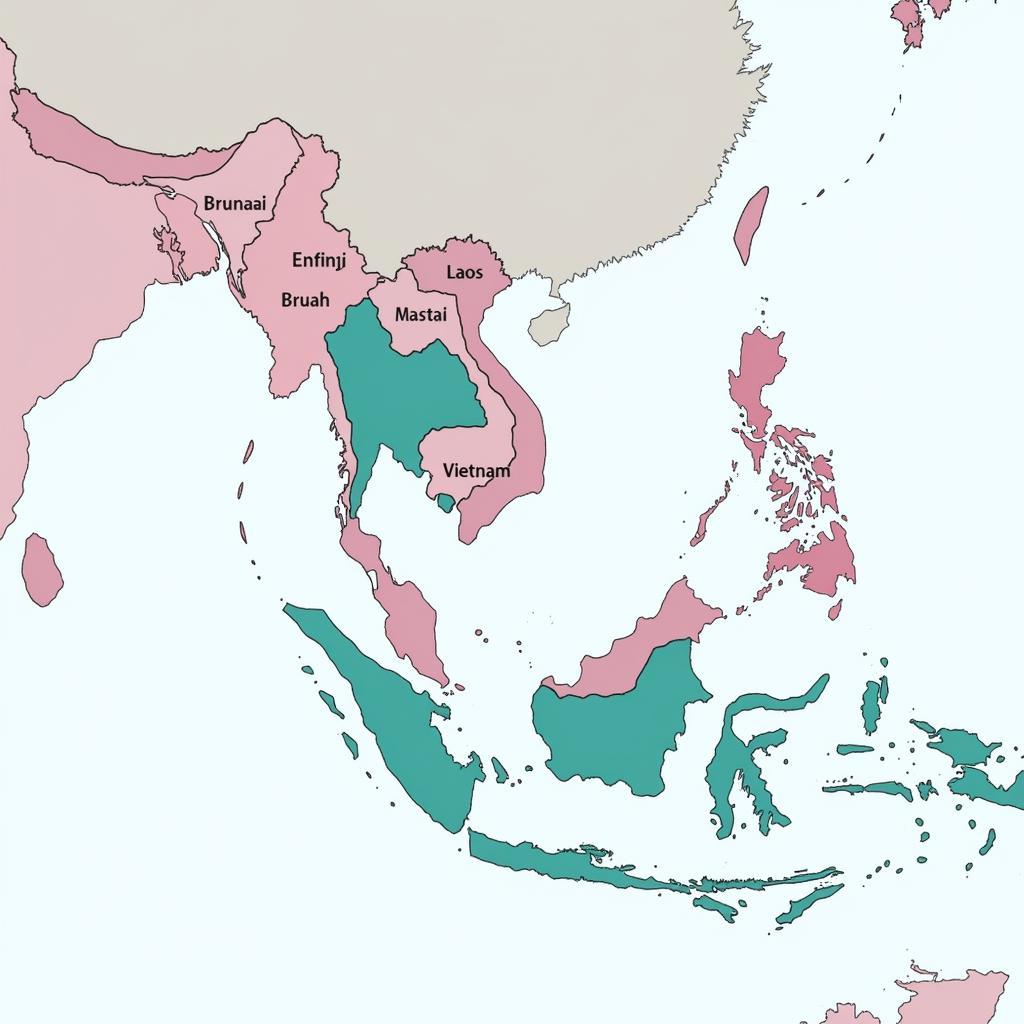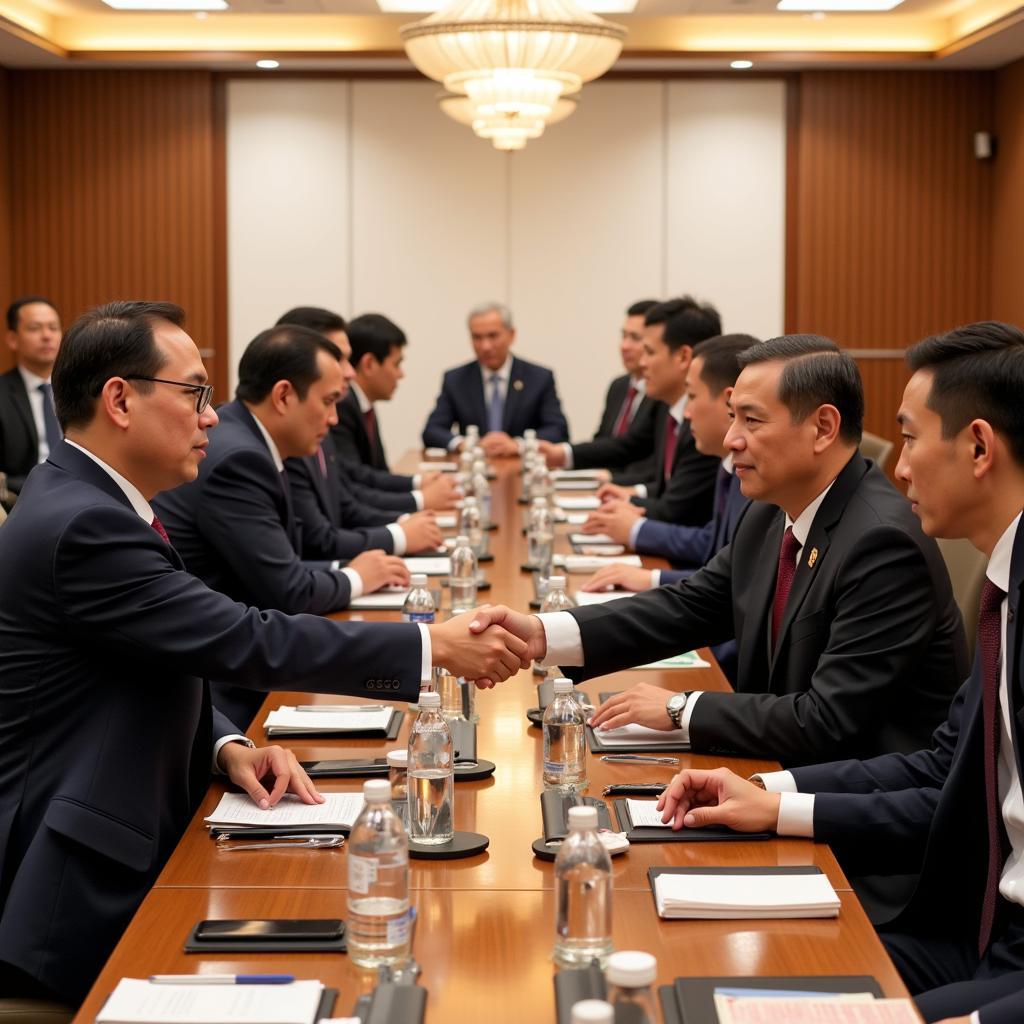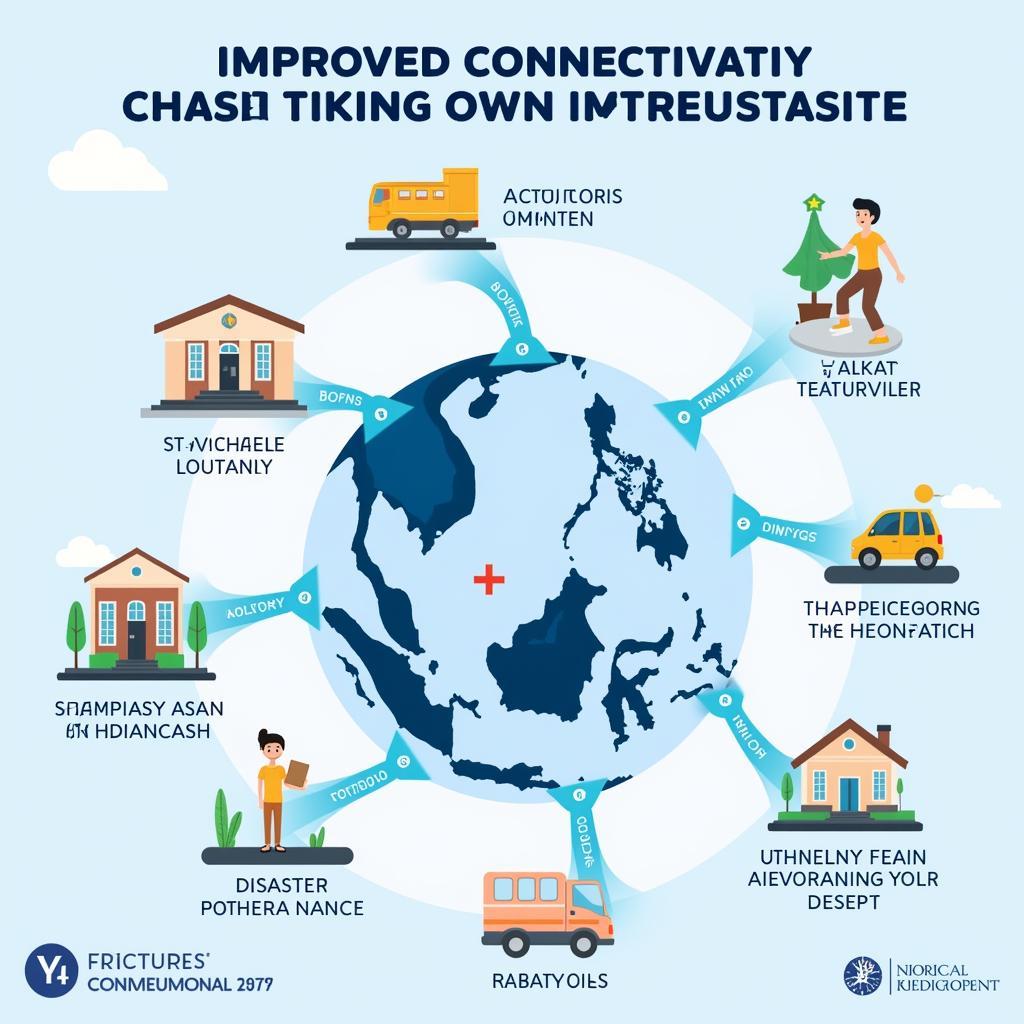ASEAN, or the Association of Southeast Asian Nations, is a regional intergovernmental organization of 10 Southeast Asian countries promoting economic, political, and security cooperation in Southeast Asia.
 ASEAN Member States
ASEAN Member States
Understanding ASEAN: More Than Just a Geographical Term
While a simple ASEAN definition might describe its geographical location in Southeast Asia, the association’s impact extends far beyond its borders. Established in 1967 by Indonesia, Malaysia, the Philippines, Singapore, and Thailand, ASEAN has played a pivotal role in fostering peace, stability, and prosperity in the region. Over the decades, it has expanded to include Brunei Darussalam, Vietnam, Laos, Myanmar, and Cambodia, solidifying its position as a crucial platform for regional dialogue and collaboration.
The Pillars of ASEAN: A Multifaceted Approach
ASEAN’s strength lies in its multifaceted approach to regional integration, guided by three key pillars:
- ASEAN Political-Security Community: This pillar focuses on promoting peace and stability in the region through political dialogue, conflict prevention mechanisms, and cooperation in combating transnational crime.
- ASEAN Economic Community: This pillar aims to establish a single market and production base for ASEAN, facilitating the free flow of goods, services, investment, and skilled labor within the region.
- ASEAN Socio-Cultural Community: Recognizing the importance of shared values and identity, this pillar promotes cooperation in education, culture, health, and social development, aiming to build a resilient and cohesive ASEAN Community.
 ASEAN Summit
ASEAN Summit
ASEAN’s Role in the Global Landscape
ASEAN’s growing economic clout and strategic location have made it an increasingly important player in the global arena. The association actively engages with dialogue partners like the United States, China, Japan, and the European Union, advocating for multilateralism and a rules-based international order. ASEAN’s commitment to free trade is evident in its numerous free trade agreements, including the Regional Comprehensive Economic Partnership (RCEP), the world’s largest trade bloc.
The Future of ASEAN: Navigating Challenges and Opportunities
Despite its achievements, ASEAN faces significant challenges in the 21st century, including geopolitical rivalry, economic disparities within the region, and non-traditional security threats such as climate change and pandemics. However, ASEAN’s commitment to dialogue, consensus-building, and cooperation provides a solid foundation for navigating these complexities.
ASEAN Definition in a Sentence: A Concise Summary
In essence, ASEAN’s definition in a sentence encapsulates its role as a regional organization fostering economic, political, and socio-cultural cooperation among its ten Southeast Asian member states.
FAQs
1. What is the main purpose of ASEAN?
ASEAN aims to accelerate economic growth, social progress, and cultural development in the region, promoting regional peace and stability through dialogue and cooperation.
2. How does ASEAN benefit its member states?
ASEAN provides a platform for member states to address shared challenges, leverage collective bargaining power in international forums, and access new markets and investment opportunities.
3. What are some of ASEAN’s key achievements?
ASEAN has successfully established a platform for regional dialogue and cooperation, contributed to the maintenance of peace and stability in Southeast Asia, and facilitated significant economic integration within the region.
4. What is ASEAN’s role in the South China Sea dispute?
ASEAN plays a crucial role in facilitating dialogue and negotiations among claimant states in the South China Sea dispute, advocating for a peaceful resolution based on international law.
5. How can I learn more about ASEAN?
You can find a wealth of information on ASEAN’s official website, as well as resources from academic institutions, think tanks, and media outlets specializing in Southeast Asian affairs.
Need More Information on ASEAN?
For any inquiries or assistance regarding ASEAN and related topics, please don’t hesitate to contact us:
Phone: 0369020373
Email: [email protected]
Address: Thon Ngoc Lien, Hiep Hoa, Bac Giang, Vietnam
We are available 24/7 to assist you.


